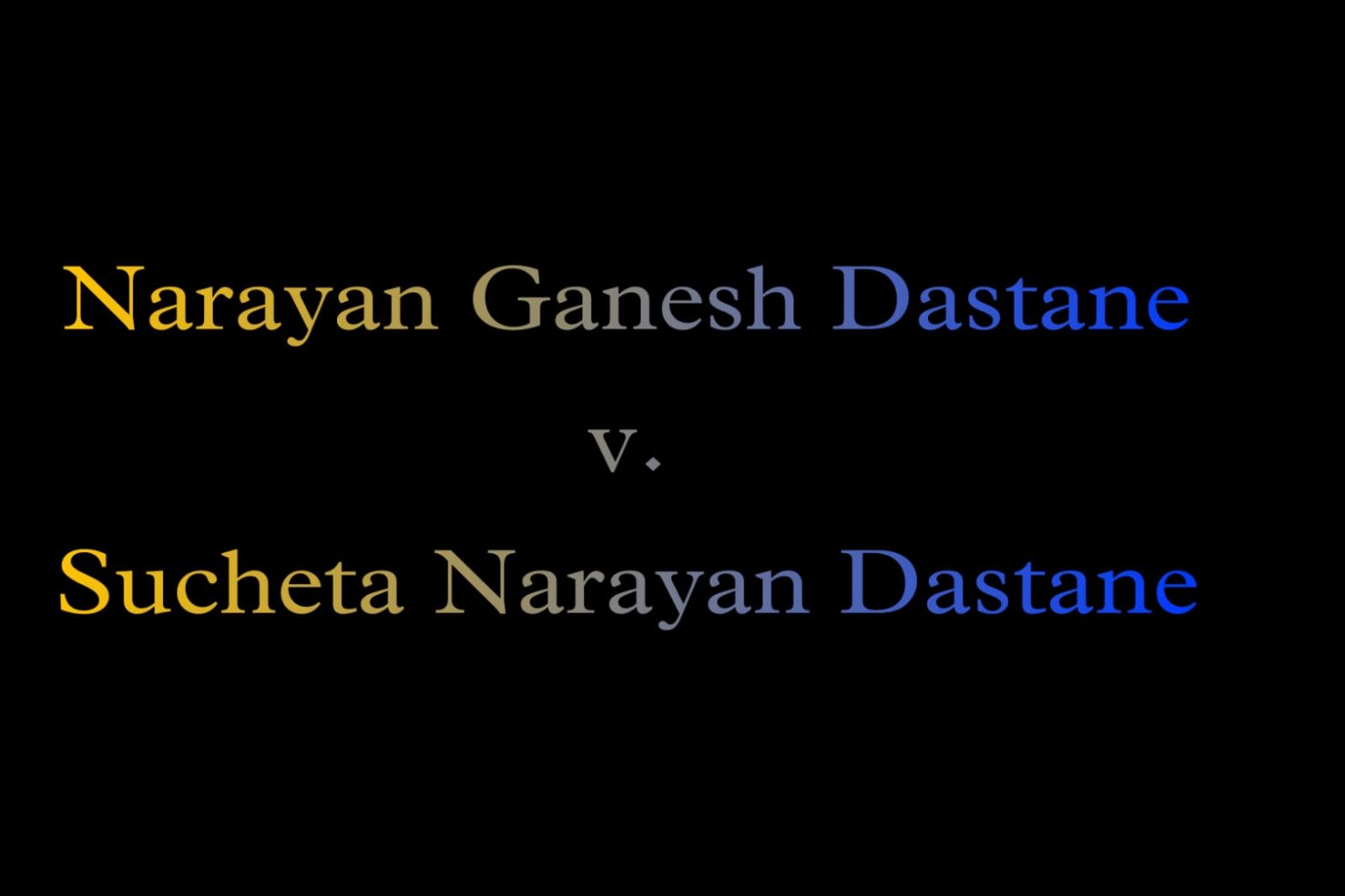Case Name: Narayan Ganesh Dastane vs. Sucheta Narayan Dastane
Citation: AIR 1975 SC 1534
Date of Judgement: 19-03-1975
Parties Involved: Narayan Ganesh Dastane and Sucheta Narayan Dastane
Facts
In 1956, Narayan Ganesh Dastane and Sucheta Narayan Dastane got married. Before marriage, Sucheta’s father, B.R.Abhyanker, sent letters to Narayan informing him that Sucheta suffered from a ‘bad attack of sunstroke’ that affected her mental condition for some time from which she recovered. He also mentioned ‘cerebral malaria’ as another reason for the brief decline of her mental health. He stated that her daughter got cured at the Yerawada Mental Hospital. Narayan followed up with the doctors and upon the Doctor’s confirmation of Sucheta’s father’s statement, he did not make any further inquiries at the Yerawada Mental Hospital and consented to the marriage.
In March 1957, a daughter was born to the couple named Shubha, and on March 21, 1959, a second daughter was born named Vibha. In 1961, Sucheta was three months pregnant, when Narayan asked for police protection considering Sucheta as a threat to his life. Later, Sucheta asked for maintenance for herself and her 2 daughters from Narayan and also addressed a letter to the Ministry of Food and Agriculture stating the cruel treatment and desertion by her husband and claimed maintenance separately from the government.
At first, Narayan asked for divorce under Section13 (1)(iii), Hindu Marriage Act, 1955, on the ground that Sucheta was of unsound mind. Alternatively, he asked for judicial separation under Section 10(1)(b) on the ground that the Sucheta had treated him with cruelty, which created a reasonable apprehension in his mind that it would be harmful and injurious for him to live with her.
Issues
In this case, three main issues were discussed:
- Whether the Burden of Proof of cruelty lies on the Petitioner or not?
- Whether the facts have to be established beyond a reasonable doubt in matrimonial matters?
- Whether the act of sexual intercourse amounts to condonation of cruelty?
Holding
The Supreme Court held that Naryan’s contention regarding his wife being of unsound of mind was fabricated by him. However, the contention regarding cruelty has been proven to exist but the appellant’s act of engaging in sexual intercourse with the respondent leads to ‘condonation of cruelty in the eyes of law. Hence, the respondent will not be held liable for cruelty and the divorce petition will not be granted.
Rationale

The apprehension in the respondent’s mind should be real harm and injury, which was missing in this case. The couple led a normal sexual life despite the act of cruelty and there was no such incident that would call for the act of self-defense. Also, the respondent was willing to stay with her husband after realizing her mistakes which represents a normal matrimonial relationship, uninfluenced by the respondent’s conduct.
Dicta
The whole discussion of mental cruelty was missing in the judgment. Mental cruelty is a state of mind. The court did not attempt to define mental cruelty. Sometimes, the feeling of deep anguish, frustration, and disappointment in one spouse caused by the conduct of another for a long-time can lead to mental cruelty.
Comment
This case had a significant recognition as this was the first case in which cruelty was considered as a ground for divorce. Before this case, under the Hindu Marriage Act, 1956 cruelty was only a ground for judicial separation and not a ground for divorce. However, the definition of cruelty also gets changed along with the change in the law.
